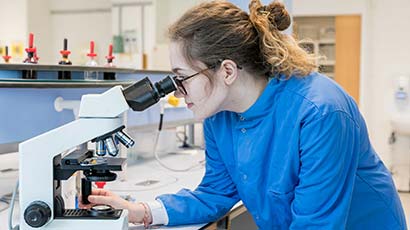Neuroprotective effects of edible mushroom extracts
A novel treatment for neurodegenerative conditions
Introduction
An exciting opportunity to apply for a fully funded PhD position at the Centre for Research in Biosciences in the College of Health, Science and Society, UWE Bristol. The studentship will be funded by a partnership between UWE Bristol and the Bristol Fungarium:
Ref: 2324-JAN-HSS06.
The expected start date of these studentships is 2 January 2024.
The closing date for applications is 10 November 2023.
Studentship details
This is an exciting opportunity to study for a fully funded PhD in Molecular/Cellular Neuroscience within the thriving Centre for Research in Biosciences at UWE Bristol. Alzheimer’s Disease (AD) is the most prevalent neurodegenerative condition, and affects approximately 50 million people worldwide. Despite this, there are few effective treatments or preventive strategies, and the causes of the disease are poorly understood. Recent studies have indicated that a decline in adult neurogenesis is a key factor in AD aetiology, suggesting that this process may be a novel therapeutic target.
The Lion’s Mane Mushroom, Hericium Erinaceum, has been used in traditional Eastern medicine for hundreds of years to treat disorders including cognitive decline, however little attention has been paid to its therapeutic properties in Western medicine. Intriguingly, several scientific studies, have recently identified active compounds in this fungus (erinacines) which have neuroprotective and neurogenic effects.
The Bristol Fungarium, based in Barrow Gurney, is a company that specialises in the growth of native British Lion’s Mane mushroom and the production of therapeutic tinctures from it, using a tightly regulated extraction process. Additionally, they produce extracts of several other mushrooms with potential therapeutic properties, including Miitake, Shiitake, Turkey Tail and Reishi.
This project will be a collaboration between UWE Bristol and the Bristol Fungarium in order to establish and define the therapeutic properties of Lion’s Mane and other mushroom extracts in a rigorous laboratory setting, in order to validate its potential as a therapy for AD.
For an informal discussion about the studentship, please email Dr Tim Craig (tim.craig@uwe.ac.uk).
Funding
The studentship is available from 2 January 2024 for a period of three years, subject to satisfactory progress and includes a tax exempt stipend, which will be £18,622 (2023/24) per annum.
In addition, full-time tuition fees will be covered for up to three years (Home).
Eligibility
Applicants must have at least a 2:1 or equivalent degree in Biomedical Science, Neuroscience, Cell Biology or a related discipline and ideally will have or be working towards a postgraduate, research-based qualification (or equivalent experience). Knowledge of cellular/molecular neuroscience and cell culture techniques would be an advantage.
How to apply
Please submit your application online. When prompted use the reference number 2324-JAN-HSS06.
Supporting documentation: You will need to upload your research proposal, all your degree certificates and transcripts and a recognised English language qualification (if required).
References: You will need to provide details of two referees as part of your application.
Closing date
The closing date for applications is Friday 10 November 2023.
Further information
It is expected that interviews will take place on 6 or 7 December 2023. If you have not heard from us by 17 November 2023, we thank you for your application but, on this occasion, you have not been successful.
You may also be interested in

Contact the Doctoral Academy
Ways to contact the Doctoral Academy, from postgraduate research support to submitting your thesis.

Fees and funding
View Doctoral Academy tuition fees, project fees, completion fees and resubmission fees.

About the Doctoral Academy
Find out more about the UWE Bristol Doctoral Academy.

Research
Discover how research at UWE Bristol is making a real impact.
